Search Results for: Monkeys
Skip to resultsCan’t find what you’re looking for? Visit our FAQ page.
2,692 results for: Monkeys
-
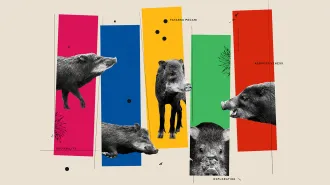 Animals
AnimalsAnimal personalities can play a big role in saving species
From bold foxes to gregarious birds, animals’ personalities are increasingly being seen as crucial to conservation efforts.
-
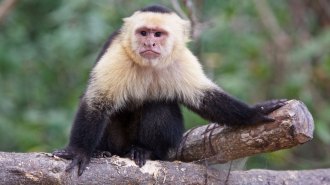 Animals
AnimalsJuvenile capuchins are kidnapping infants of another monkey species
Over 15 months on Jicarón Island, researchers saw five capuchin juveniles abduct 11 endangered howler monkey infants — all for no clear purpose.
By Freda Kreier -
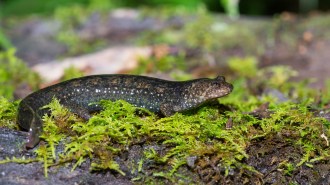 Animals
AnimalsJust like humans, many animals get more aggressive in the heat
From salamanders to monkeys, many species get more violent at warmer temperatures — a trend that may shape their social structures as the world warms.
-
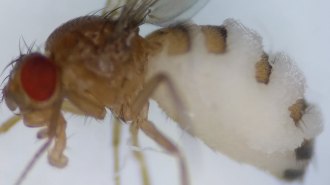 Life
LifeThis killer fungus strikes at sunset. Here’s how
The fungus Entomophthora muscae turns flies into zombies and kills them at sunset. An internal kill clock may explain the mysterious timing.
By Meghan Rosen -
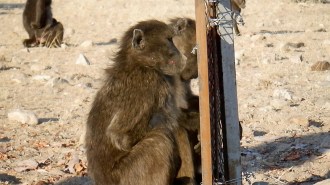 Animals
AnimalsWild baboons don’t recognize themselves in a mirror
In a lab test, chimps and orangutans can recognize their own reflection. But in the wild, baboons seemingly can’t do the same.
-
 Health & Medicine
Health & MedicineCancer patients froze reproductive tissue as kids. Now they’re coming back for it
Saving reproductive tissue from kids treated for cancer before adolescence could give them a chance at having biological children later in life.
By Meghan Rosen -
 Climate
ClimateSome trees are coping with extreme heat surprisingly well
Rising temperatures could reduce trees' ability to photosynthesize. Scientists are trying to figure out just how close we are to that point.
-
 Computing
ComputingThere’s no cheating this random number generator
From jury duty to tax audits, randomness plays a big role. Scientists used quantum physics to build a system that ensures those number draws can’t be gamed.
By Celina Zhao -
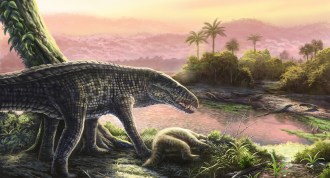 Paleontology
PaleontologyThese crocodile-like beasts reached the Caribbean, outlasting mainland kin
Knife-toothed reptiles called sebecids went extinct on the mainland 10 million years ago. New fossil evidence puts them on an island 4 million years ago.
By Jake Buehler -
 Climate
ClimateWarming is chasing cloud forests steadily uphill
Cloud forests are biodiversity hot spots and crucial water sources. But climate change and deforestation are shrinking their range, new data show.
By Douglas Fox -
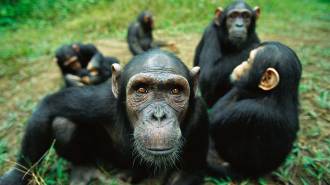 Animals
AnimalsFor adult chimps, playing may be more important than previously thought
A multiyear study of dozens of wild, adult chimps suggests that play helps reduce tension and boost cooperation among individuals.
-
 Health & Medicine
Health & MedicineHe made beer that’s also a vaccine. Now controversy is brewing
An NIH scientist’s maverick approach reveals legal, ethical, moral, scientific and social challenges to developing potentially life-saving vaccines.